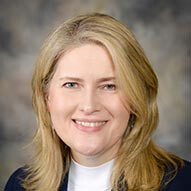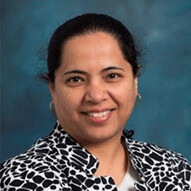Eating disorders in younger children
Feeding your child well is one of a parent’s most important jobs – but it’s not always easy. At Children’s Health℠, we understand the complex relationships between food, family, health and emotions. Each year, we help hundreds of children of all ages have a healthier relationship with food. And we provide parents with life-changing tools to guide their children towards a more balanced, joyful life.
What are eating disorders in younger children?
Eating disorders are problems with the way a child eats. They’re more common in young children than most people think. And they can happen to a child of any gender, race or ethnicity.
Eating disorders affect children physically and mentally – and can create a lot of stress for families. Treatment can help you and your child feel better in many ways.
Our specialized treatment programs for children ages 5 to 12 can:
Reduce stress around meals, travel or social situations
Reduce your child’s anxiety
Improve your child’s body image (if that’s a problem)
Make sure your child gets the nutrients they need for healthy growth and development
Improve your child’s energy, mood and ability to focus
Prevent or treat serious health problems that eating disorders can cause (like heart or kidney damage)
What are the different types of eating disorders in younger children?
Anorexia is when a child refuses to eat a normal amount because they’re scared of gaining weight.
Bulimia is when a child overeats and then throws up (vomits) or uses laxatives to prevent gaining weight.
Avoidant/Restrictive Food Intake Disorder (ARFID) children struggle to eat for reasons that are unrelated to weight gain or body image. They may eat only a few specific foods and refuse all others. This may be based on texture, taste, a fear of choking or vomiting, or other fears or struggles.
What are the signs and symptoms of eating disorders in younger children?
Eating disorders are not always obvious. A child can look “normal” and “healthy” on the outside but have serious physical and emotional problems on the inside.
The first sign that you – or your child’s doctor – may notice is that your child isn’t gaining the typical amount of weight for their age or height.
Other early signs of anorexia, bulimia or ARFID in children include:
Not eating what they used to eat (“I’m not going to eat my favorite muffin anymore.”)
Taking a long time to eat
Not eating what the rest of the family eats
Having trouble focusing in school
Not wanting to go to events with food, like birthday parties
Boys and girls with anorexia and bulimia may also:
Make comments about other people’s bodies
Exercise too much
Make comments about their body and how they don’t like it
Boys and girls with ARFID may also:
Avoid eating an entire category of food, like fruits and veggies
Be very specific about restaurants they’re willing to eat at and what they order there
Only eat specific brands
Only eat foods with certain textures
Prefer foods with lots of carbs
Have a history of eating struggles from infancy or early childhood
May have a sudden change with eating due to fears of choking, vomiting, pain, medical struggles or other experiences.
Have tantrums or behavior problems
How are eating disorders in younger children diagnosed?
If there are concerns about your child’s eating habits or body image, give us a call. We will ask you questions over the phone to help figure out what type of eating disorder your child may have and how best to help.
A physical exam is recommended to make sure your child isn’t having any other medical problems. One of our mental health clinicians will also do a comprehensive evaluation to understand your child’s health, eating habits and behavior. Then we’ll recommend the right level of care to meet your child’s unique needs.
What are the causes of eating disorders in younger children?
Many parents wonder, “Why is my child not eating?” or “Why can’t my child eat normally?” The answer is usually not simple.
It’s important to realize that the causes are different for every child, and that parents are never the cause. But parents can be part of the solution.
Here are some things that can make a child more likely to have an eating disorder:
Some kind of trauma related to eating (like choking)
Bullying at school
A family history of eating disorders
History of feeding struggles
Having sensory issues (for ARFID)
Other mental health issues such as anxiety or depression may contribute to eating disorders
How are eating disorders in younger children treated?
We’re committed to the best evidence-based care available. We offer several levels of expert care, depending on the unique needs of your child.
Inpatient care - This is for children who need to be in the hospital for medical, nutrition or growth problems caused by an eating disorder.
Partial hospitalization - This is for children who need to have their meals supervised but don’t need to spend the night in the hospital. Children stay in the hospital during the day and go home to sleep. While children are in the program during the day, they participate in school, group therapy and therapeutic meals.
Intensive outpatient (IOP) care - This is for children who are ready to return to school and to eat meals at home again and have families that feel equipped to support them at home.
We know that what works for one child may not work for another. We take a variety of approaches to help children and their families figure out what an eating disorder means to them, and how to get back to eating healthfully.
You and your child can benefit from:
Individual child therapy - This helps to address behavior and eating habits, recent stressful or traumatic events, and how your child feels about their body. We can also help treat underlying worries, anxiety or depression that may play a role in your child’s eating issues.
Family therapy - This makes feeding and eating as a family feel good again. We’ll help you better understand your child’s emotions. And we’ll give you lifelong communication and parenting tools.
Group therapy - This is to help children and families connect to others who share their struggles.
Meal education - This is to help learn more about preparing meals and what to say (or not say) during meals to make meals less stressful for your child and your family
Parent education - This is to help you sustain positive changes for years to come.
Eating disorders in younger children doctors and providers
Children’s Health offers world-class, compassionate care from a variety of experts who specialize in treating eating disorders.
 Urszula Kelley, MDPediatric Psychiatrist
Urszula Kelley, MDPediatric Psychiatrist Mohanika Gowda, MDPediatric Psychiatrist
Mohanika Gowda, MDPediatric Psychiatrist Medha Iyer, MDPediatric Psychiatrist
Medha Iyer, MDPediatric Psychiatrist M Elizabeth Weidmer-Mikhail, MDPediatric Psychiatrist
M Elizabeth Weidmer-Mikhail, MDPediatric Psychiatrist